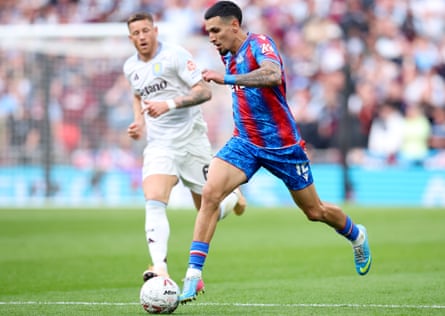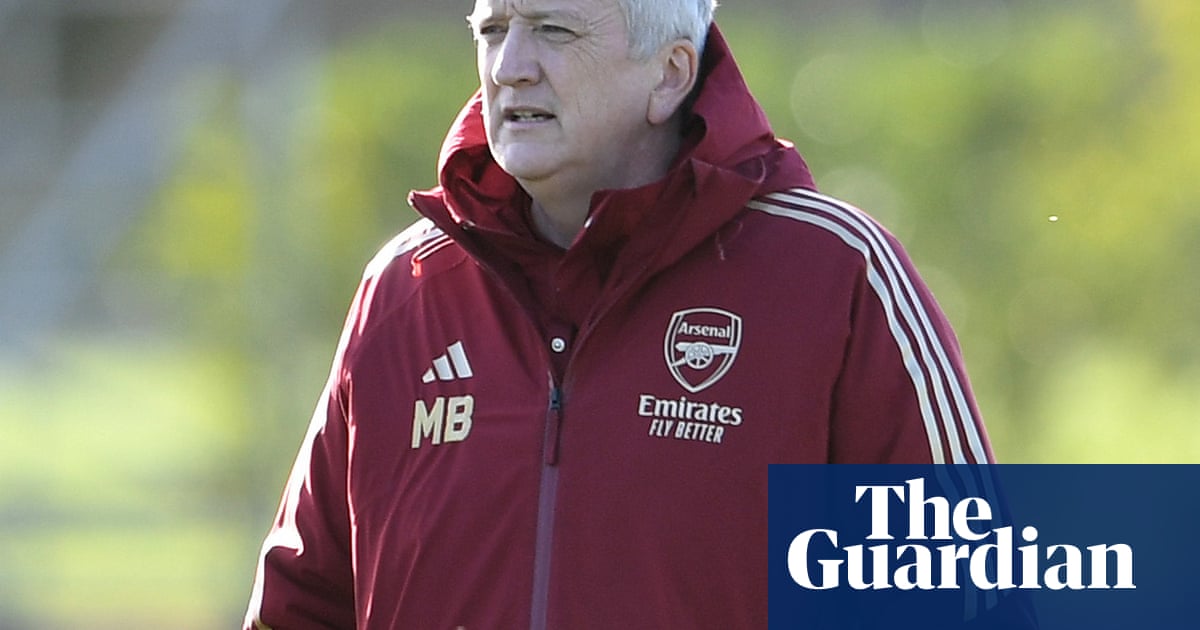Only two weeks to go. That’s the mantra. Two more weeks to endure the familiar trauma of logging on to the fantasy football app, picking a team, celebrating the wise decisions that have led you to create an unbeatable unit, watching the weekend’s football disabuse you of this notion, then repeating the whole thing again.
It’s supposed to be a game, but Fantasy Premier League (FPL) is more like a lifestyle. Or a second job. Or even exactly like being a professional footballer: the focus, determination and relentless commitment should really be rewarded with a weekly salary, preferably in the five figures. But no, instead we have to make do with a brief appearance of a green arrow next to our team name or, more likely, a red one.
Fantasy sports games have been around as long as the nuclear family. In 1962 a minority shareholder in the Oakland Raiders, Bill Winkenbach, devised what he called the GOPPPL (the Greater Oakland Professional Pigskin Prognosticators League), an activity that allowed fans to assemble their own team with players from across the NFL, score points according to their performance and compete against other players in a league. A homespun English football version appeared in the 1970s before the programmer Andrew Wainstein and the Daily Telegraph brought it mainstream in the 1990s. FPL arrived on the Premier League website in 2002, and Thierry Henry cost £11m.
The game has grown and grown, arguably at a faster rate than the Premier League itself. In the past decade the number of registered teams each season has tripled, from 3.73 million in 2015-16 to 11.49 million in 2024-25. Players play it, Erling Haaland posts about it, and a growing band of experts and influencers produce enough content for FPL heads to stew over their choices all week.
Like any other internet community, FPL has its own jargon and rules for living. If a player fails to score more points than those awarded for getting on the pitch, it’s called a “blank”. If they score in double figures it’s a “haul”. A player overlooked by most managers is known as a “differential”, a team full of popular players is “template”. In choosing one’s team you should avoid the risk of “overthinking” and in choosing your captain (the player whose points count double each week) you should never get “fancy”, which this season would mean giving the armband to anyone but Mohamed Salah. Competition is global, with every team competing in an overall league, and local, with the work or friends mini league the source of joy, pain, banter and mutual support.
I have had my moments this year. I clocked faster than many that Haaland, an FPL monster in his first two seasons at Manchester City, was falling out of form. I trusted in Crystal Palace’s Daniel Muñoz, who has grown throughout the season to be one of the dominant defenders in the game. My best score, 129 points in gameweek 24, was driven by performances from the unlikely duo of Chris Wood and Jordan Pickford (oh and Salah, who got 58 of those points as my non-fancy captain). In fact, this is likely to be my most successful ever FPL season, with more points and potentially a ranking in the top 100,000.

But the thing is, it doesn’t feel like that. My friends have mostly abandoned the mini league I’m romping away with, which dilutes the glory somewhat. Equally, playing FPL can often feel like scrolling Instagram; there is always someone more successful than you, with a better team, who seems instinctively to know how to play the game, and who doesn’t transfer in Marco Asensio on the day he misses two penalties in a match. Then follows a process of recrimination, of watching that extra YouTube transfer dilemma live stream, of poring over one more xG chart and then, finally, remodelling your team to chase the success others had the week before (the term for that being “kneejerking”).
after newsletter promotion
This way, you may already have observed, madness lies. And so I have increasingly found myself lurking in one specific corner of Reddit looking for succour. I have found it too. Each week in r/FantasyPL there will be hundreds of messages posted related to the week’s matches and 80% of them will be commentary on the failure of their players to score points. One user, known as big_seph, has boiled this Weltschmerz into an essence. Each week their “The most FPL season of FPL to ever happen” posts capture the ways in which the game has managed to poke its managers in the eye. Their observation after Bryan Mbeumo, who was captained by four million managers in gameweek 35, only to fail to score against Manchester United in a 4-3 win: “Rang my uncle in prison and he’s got a new cellmate.”
Why do I enjoy these posts so much? Why do I keep on returning to FPL despite its ability to literally ruin my week (with so many rearranged fixtures nowadays there’s rarely a day without the opportunity for an FPL mishap)? I think I know the answer. In an age where being a football fan has become more conditional, more transactional, and where victory is apparently the only thing that gives meaning, the life of the FPL manager is a throwback. Fatalism, black humour, a stubborn willingness to endure, each of these qualities remain valuable in FPL, just like they once were in the stands. Wise men say it is only by leaving Muñoz on your bench when he scores an 11-pointer that you can you truly appreciate a Jacob Murphy haul against Palace; something I will do my best to remember when I inevitably slam my face into my palm for the penultimate time this season.

 7 hours ago
6
7 hours ago
6

















































